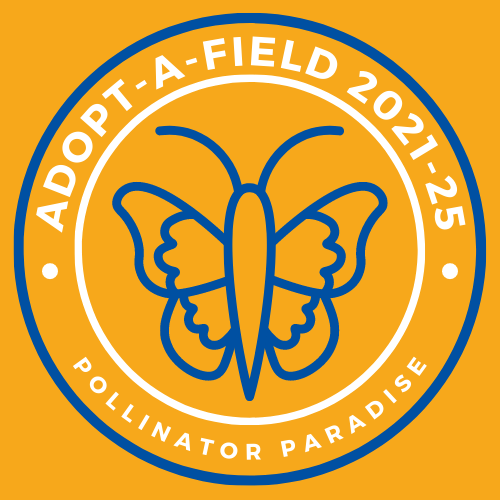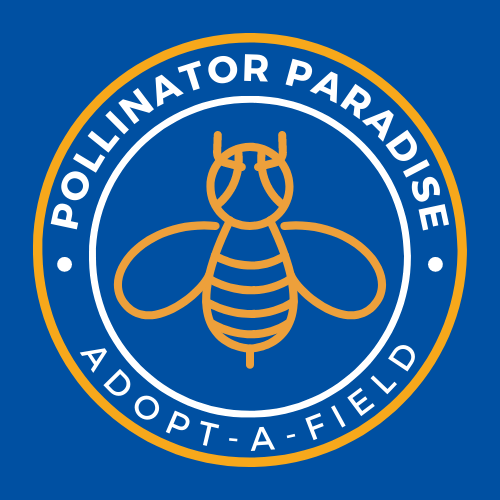Adopted Field
Adopt-A-Field


“The Adopt-a-Field program fits perfectly with the Rotary motto of ‘service above self' said WW Rotary President Paul Lualdi. “Our goal is to involve as many community members as want to participate in conservation projects; that we hope will reverse the damage done and then preserve our natural environment for generations to come.”
The first step in the “adoption” process is a major cleanup of invasive species that have spread throughout the field. Removal has been underway since late June, with team members working diligently over many days, nights, and weekends to remove the plants and reclaim the field’s boundaries. The work is fun but arduous, with team members using chainsaws, oversized hedge clippers, and other professional-grade tools to accomplish the work.
Once the team removes all the invasive plants—which is expected to take another month or two—they will begin to plant native flora. The goal is to provide pollinators such as milkweed, and golden rod with a rich trove of natural food. In addition to known native flora, we will be introducing some visitor species that our native pollinators may never have known about.
Global warming and pesticides have put our pollinators under great stress. Without them, we have no food. That’s why this Sears Field reclamation project feels so important and urgent to the Rotary Conservation team. Education will play a key role in our effort. Our educational resources include Master Gardeners and Pollinator Pathways POLLINATOR-PATHWAY-TOOLKIT.pdf (pollinatorpathways.com). Through the Adopt-a-Field program, WW Rotary will engage Interact and Rotaract students, nearby Girls and Boys clubs, and students in the Weston and Wayland schools. Once the project is up and running, we hope to help elementary and middle schools create pollinator-supporting meadows or gardens around their campuses.
All this work takes money, of course! Great news on that front: Weston Wayland Rotary just received a $1750 District Foundation Grant. However, the total estimated cost for the Sears Field project alone is ($20,000 over five years)—so we need your help. Funds will support the ongoing need for tools, native plant species, invasive management, conservation consulting, and educational resources.
2022 Work in Progress
2021 Work
-
Our Field Work History 2021
The work in this field has been a partnership between The Weston Conservation Commission and The Weston Wayland Rotary Club. At the beginning of 2021, we began working with the Con Comm to establish a basis of design for our work, so that we would follow the direction of the Con Comm, thereby reworking the field as the Town of Weston would like. We met monthly with the Con Comm, updating them on our work and asking questions as issues came up.
There was a lot of administrative and legal preparation and discussion. Fortunately, we have a member, Susan Howard, who is an attorney. She has been of great help. She led the drive to develop documents to be signed by members and other volunteers; to protect the Club, the members, and the visitors. We also included informational documents that would help to be aware of any environmental concerns: cutting work, sun, and heat, poison ivy, insects, etc. We provide samples of some of these documents at the end of this document.
We started our work on the south side perimeter, which is contiguous to the properties on Crescent St. We cut oriental bittersweet vines and pulled garlic mustard and other invasive plants around the perimeter. We continued to work our way around to the east, then the north side, closer to the water.
When summer arrived, we decided to do mowing, expressly for the purpose of preventing the black swallow wort from blooming and going to seed. Prior to and after the time of the mowing, Tim Gavin kept the main paths clear for the workers, especially around the perimeter; so that we could get more easily to the perimeter. We were aware of good patches of milkweed and other natives in the field. But we also would re-grow after mowing.
We soon realized that mowing was not enough to keep the black swallow wort at bay. We decided to have VCS, the company that the Town of Weston uses, spray herbicide on the field. The person who applied the herbicide was very good. He was quite selective in where and what he sprayed because he had knowledge of the natives and the invasives. He did two sprays, one on the black swallow-wort, one on the Japanese knotweed. Some billing statements are provided at the end of this document.
Costs first year (2021)
Mowing - $500
Herbicides - $1500
As for fundraising, it’s not easy. We got off to a slow start. But some of us really worked at researching ways to fundraise. One of the bright spots is that we now have a presence on various types of Internet media.
One of our main goals is to educate. Some good education has come in the form of bringing Boy Scouts into the field to work. This of course is not only beneficial to them in the way of education, but also in the way of advancing in their badge work. More partnerships are on the way.
The Close of the Work Season by Tim Gavin
As the year 2021 comes to a close, so does the inaugural year and the initial project of the new Conservation Team of the Rotary Club of Weston and Wayland. One of the last days of the year witnessed the removal of debris and detritus created by the hundreds of hours spent by volunteers from the club, along with friends, Boy Scouts, and other members of the community. It took over 15 one-ton dump trucks to remove all of the invasive species that the workers cut down over the course of the last 9 months.
In the picture above, The Town of Weston deployed a tractor and dump truck to remove large amounts of debris from the field.
Since late March, members of the RCWW and other volunteers met on numerous Saturdays and Thursday nights to help reclaim the Sears Field from an infestation of invasive species that include black swallow wart, Japanese knotweed, oriental bittersweet, multi-flora rose, and several others. These plants not only make it more difficult for the native ones to thrive by actively choking or crowding them out, but they are detrimental to native fauna like monarch butterflies and other pollinators.
The RCWW volunteers ripped up, lopped off, and chainsawed through thousands of pounds of these harmful species. The club also paid for additional field mowing to keep the harmful plants from flowering and using selective treatments to kill off the broad leaf invasives. The town of Weston graciously removed all the debris so that the field is ready for its next phase of work to begin in the spring of 2022!
This is only the first year of a five-year plan to fully reclaim the field from the invasives and to plant helpful pollinators that the whole community can enjoy! The Conservation Team of RCWW will need all the assistance it can gather in the coming years and welcomes all able-bodied souls to help however they can (or even come watch and socialize with other members of the club). Stay tuned in the Spring for more cleanup dates.
If you would like to be a part of this amazing transformation and get involved, please email president@westonwaylandrotary.org for more information.
Invasives in the Field
Black Swallow-Wort
Oriental Bittersweet
Garlic Mustard
Multi-flora Rose

.png)












